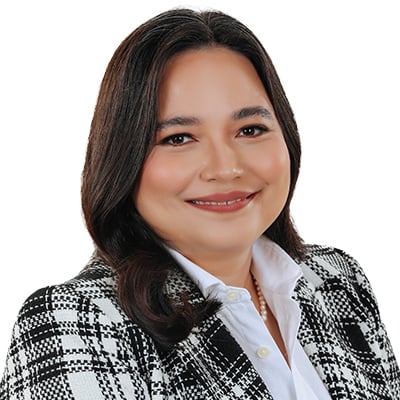-
Audit approach overview
Our audit approach will allow our client's accounting personnel to make the maximum contribution to the audit effort without compromising their ongoing responsibilities
-
Annual and short period audit
At P&A Grant Thornton, we provide annual and short period financial statement audit services that go beyond the normal expectations of our clients. We believe strongly that our best work comes from combining outstanding technical expertise, knowledge and ability with exceptional client-focused service.
-
Review engagement
A review involves limited investigation with a narrower scope than an audit, and is undertaken for the purpose of providing limited assurance that the management’s representations are in accordance with identified financial reporting standards. Our professionals recognize that in order to conduct a quality financial statement review, it is important to look beyond the accounting entries to the underlying activities and operations that give rise to them.
-
Other Related Services
We make it a point to keep our clients abreast of the developments and updates relating to the growing complexities in the accounting world. We offer seminars and trainings on audit- and tax-related matters, such as updates on Accounting Standards, new pronouncements and Bureau of Internal Revenue (BIR) issuances, as well as other developments that affect our clients’ businesses.
-
Tax advisory
With our knowledge of tax laws and audit procedures, we help safeguard the substantive and procedural rights of taxpayers and prevent unwarranted assessments.
-
Tax compliance
We aim to minimize the impact of taxation, enabling you to maximize your potential savings and to expand your business.
-
Corporate services
For clients that want to do business in the Philippines, we assist in determining the appropriate and tax-efficient operating business or investment vehicle and structure to address the objectives of the investor, as well as related incorporation issues.
-
Tax education and advocacy
Our advocacy work focuses on clarifying the interpretation of laws and regulations, suggesting measures to increasingly ease tax compliance, and protecting taxpayer’s rights.
-
Business risk services
Our business risk services cover a wide range of solutions that assist you in identifying, addressing and monitoring risks in your business. Such solutions include external quality assessments of your Internal Audit activities' conformance with standards as well as evaluating its readiness for such an external assessment.
-
Business consulting services
Our business consulting services are aimed at addressing concerns in your operations, processes and systems. Using our extensive knowledge of various industries, we can take a close look at your business processes as we create solutions that can help you mitigate risks to meet your objectives, promote efficiency, and beef up controls.
-
Transaction services
Transaction advisory includes all of our services specifically directed at assisting in investment, mergers and acquisitions, and financing transactions between and among businesses, lenders and governments. Such services include, among others, due diligence reviews, project feasibility studies, financial modelling, model audits and valuation.
-
Forensic advisory
Our forensic advisory services include assessing your vulnerability to fraud and identifying fraud risk factors, and recommending practical solutions to eliminate the gaps. We also provide investigative services to detect and quantify fraud and corruption and to trace assets and data that may have been lost in a fraud event.
-
Cyber advisory
Our focus is to help you identify and manage the cyber risks you might be facing within your organization. Our team can provide detailed, actionable insight that incorporates industry best practices and standards to strengthen your cybersecurity position and help you make informed decisions.
-
ProActive Hotline
Providing support in preventing and detecting fraud by creating a safe and secure whistleblowing system to promote integrity and honesty in the organisation.
-
Accounting services
At P&A Grant Thornton, we handle accounting services for several companies from a wide range of industries. Our approach is highly flexible. You may opt to outsource all your accounting functions, or pass on to us choice activities.
-
Staff augmentation services
We offer Staff Augmentation services where our staff, under the direction and supervision of the company’s officers, perform accounting and accounting-related work.
-
Payroll Processing
Payroll processing services are provided by P&A Grant Thornton Outsourcing Inc. More and more companies are beginning to realize the benefits of outsourcing their noncore activities, and the first to be outsourced is usually the payroll function. Payroll is easy to carve out from the rest of the business since it is usually independent of the other activities or functions within the Accounting Department.
-
Our values
Grant Thornton prides itself on being a values-driven organisation and we have more than 38,500 people in over 130 countries who are passionately committed to these values.
-
Global culture
Our people tell us that our global culture is one of the biggest attractions of a career with Grant Thornton.
-
Learning & development
At Grant Thornton we believe learning and development opportunities allow you to perform at your best every day. And when you are at your best, we are the best at serving our clients
-
Global talent mobility
One of the biggest attractions of a career with Grant Thornton is the opportunity to work on cross-border projects all over the world.
-
Diversity
Diversity helps us meet the demands of a changing world. We value the fact that our people come from all walks of life and that this diversity of experience and perspective makes our organisation stronger as a result.
-
In the community
Many Grant Thornton member firms provide a range of inspirational and generous services to the communities they serve.
-
Behind the Numbers: People of P&A Grant Thornton
Discover the inspiring stories of the individuals who make up our vibrant community. From seasoned veterans to fresh faces, the Purple Tribe is a diverse team united by a shared passion.
-
Fresh Graduates
Fresh Graduates
-
Students
Whether you are starting your career as a graduate or school leaver, P&A Grant Thornton can give you a flying start. We are ambitious. Take the fact that we’re the world’s fastest-growing global accountancy organisation. For our people, that means access to a global organisation and the chance to collaborate with more than 40,000 colleagues around the world. And potentially work in different countries and experience other cultures.
-
Experienced hires
P&A Grant Thornton offers something you can't find anywhere else. This is the opportunity to develop your ideas and thinking while having your efforts recognised from day one. We value the skills and knowledge you bring to Grant Thornton as an experienced professional and look forward to supporting you as you grow you career with our organisation.
Over my 23-year tenure in Human Resources, I have witnessed a transformative shift in how diversity intersects with our field. Initially, HR and diversity seemed to run on parallel tracks with just the occasional points of convergence. Today, the landscape is dramatically different.
Historically, the corporate landscape was governed by conventional norms, with a predominant emphasis on financial incentives, often within male-dominated settings. But as we have evolved, so too has our perspective within Human Resources. Our objectives have expanded beyond mere numerical targets; we are now deeply invested in nurturing and retaining our talent, underlining a commitment to inclusivity that goes hand in hand with technological advancements and a push towards gender balance.
Reflecting on the past year, I have noticed intriguing patterns in gender distribution across various levels within our organization. At the entry-level, women hold 62% of the roles, surpassing men, who account for 49%. This dynamic shift as we look up the hierarchy. At the mid-level, 27% of men are in these roles, slightly trailing behind women at 35%. However, as we ascend to senior positions, a noticeable shift occurs: women represent 9%, with men slightly behind at 7%. In upper management, men lead with 4%, while women hold 2% of these positions. At the apex of our organizational structure, the gap widens further: 4% of men hold top-tier roles, compared to 1% for women.
These figures prompt critical reflection on our internal forces at work. Why is it that women, while starting strong at the junior level, are not advancing at the same rate to senior management and executive roles? This question is not just about numbers; it is about the underlying factors that influence these trends and what they signify about our progress toward a truly inclusive workplace.
Women in leadership: A closer look at senior management
The "Women in Business 2024" report sheds light on an inspiring trend in the Philippines, where women are significantly represented in senior management roles, accounting for over 43%—a figure that has oscillated between 37% and 50% for the last two decades. This statistic is a beacon of progress, yet when we scrutinize the upper echelons of leadership, the numbers become less encouraging: only 19% of CEO or Managing Director positions and 17% of COO roles are held by women.
In the realm of Diversity, Equity, and Inclusion (DE&I), the leadership baton is predominantly held by men, with male CEOs constituting 73.5% of the total. This dominance in the highest leadership roles by men, particularly in steering DE&I initiatives, underscores a critical need. It is essential to amplify the presence and voices of women in senior management to cultivate an environment that truly embodies the principles of DE&I. While progress is evident, the journey toward balancing the scales of leadership and ensuring that women's perspectives are integral part of such strategies remain imperative.
Valuing diversity through inclusive practices
Embracing diverse perspectives is not just beneficial—it is essential for businesses aiming to foster an environment where every employee feels a sense of belonging and inclusion. A critical insight from a Forbes article highlights that the role of Human Resources extends beyond attracting diverse talent; it is equally crucial to focus on talent retention, ensuring that employees feel valued and see opportunities for growth within the company. This inclusive culture can significantly impact employees' career trajectories, potentially paving the way for them to ascend to higher roles.
Yet, the journey to the top can be fraught with obstacles, particularly for women who often grapple with societal expectations around traditional gender roles. In many Filipino families, culturally based responsibilities like household management, childcare, and caregiving disproportionately burden women, hindering their professional advancement. Addressing these entrenched norms is vital for creating a more equitable workplace.
The adoption of hybrid work models in the Philippines, as highlighted by the "Women in Business 2024" report, marks a progressive step towards balancing professional and personal lives, especially post-pandemic. With 42.2% of companies integrating such models, there is a clear commitment to enhancing work-life balance, which is crucial for DE&I and ESG strategies. The Fortune article reinforces this point, noting that hybrid working arrangements are not just about convenience; they are a cornerstone of inclusivity, enabling employees, especially women, to continue their professional growth without sacrificing their personal responsibilities.
Through such initiatives, businesses can cultivate a workspace where diverse perspectives thrive, leading to more nuanced and inclusive decision-making. This commitment to diversity not only enriches the workplace culture but also drives innovation and growth by harnessing a breadth of experiences and insights.
Evolving toward DEI-B
As we delve deeper into the gradations of workplace diversity, the evolution from Diversity and Inclusion (D&I) to Diversity, Equity, and Inclusion (DE&I), and now to Diversity, Equity, Inclusion, and Belonging (DEI&B), underscores a significant shift in our approach to fostering a genuinely, authentic, and inclusive work environment. This progression signifies a growing understanding that true inclusion goes beyond mere representation; it is about cultivating a sense of belonging where every individual feels valued and integral to the organizational fabric.
The Forbes article illuminates this shift, pointing out that DEI&B initiatives extend well beyond superficial measures of diversity. These programs are designed to embrace and leverage the rich tapestry of human experiences, recognizing that diversity is not just about demographic characteristics but also about the diverse perspectives that individuals bring to the table. For instance, the unique viewpoints of a single working parent contrasted with those of a married individual, or the differing insights from people of various cultural backgrounds, exposure, and upbringing, are invaluable for fostering a dynamic and innovative workplace.
By actively pursuing a workforce and leadership team rich in diversity, businesses are not just ticking boxes; they are strategically positioning themselves to tap into a breadth of ideas and experiences that fuel creativity and drive business growth. This approach has tangible benefits, enhancing financial performance, reducing turnover, and boosting overall job satisfaction and performance. Embracing DEI-B is not just a moral imperative but a strategic business advantage that fosters a more vibrant, innovative, and resilient organization.
Empathy - A keystone of DEI&B
In the quest to fully realize the principles of Diversity, Equity, Inclusion, and Belonging (DEI&B), one fundamental trait emerges as pivotal—empathy. Particularly in the Filipino context, empathy stands as the cornerstone for genuine understanding and connection, transcending mere listening to truly comprehending and valuing diverse experiences and perspectives.
The pandemic era underscored the critical role of empathy, as organizations navigated unprecedented challenges. Demonstrating empathy through actions—be it through financial aid to facilitate remote working setups, or through enhanced support for employees' mental and physical health—reaffirmed the significance of a compassionate approach. Such empathy-driven initiatives are not merely acts of kindness; they are strategic investments in the well-being and resilience of the workforce and, by extension, the organization itself.
However, our journey toward embedding DEI&B into the organizational ethos is far from complete. While training sessions and workshops are valuable starting points, the essence of DEI&B lies in consistent, ongoing actions and a deep-rooted commitment to empathy. True transformation requires more than seasonal initiatives or one-off events. It demands a persistent effort to integrate these values into our daily operations and organizational culture.
There is a sense of optimism that with sustained dedication, we can cultivate an environment that nurtures development from the ground up, beginning with the youngest members of our society. By instilling an awareness of DEI&B concepts from an early age, we lay the groundwork for a future where these principles are not just integrated into businesses but are part of the broader community principles. In this future, DEI&B extends its reach, impacting not only the corporate sector but also contributing to societal well-being and progress. Academic institutions play a critical role in laying the foundational understanding of DEI&B. By integrating these concepts into the educational curriculum, we equip future generations with the awareness and empathy necessary to champion these values in their personal and professional lives. Empathy, must be nurtured from an early age, enabling children and young adults to appreciate and embrace differences, understand varied perspectives, and cultivate a sense of belonging for themselves and others. This educational groundwork sets the stage for a more inclusive society, where DEI&B principles are not just corporate buzzwords but lived experiences that inform and enrich community interactions, ingrained in the fabric of our communities and organizations, shaping a world that celebrates belonging for all.
As published in The Manila Times, dated 27 March 2024




